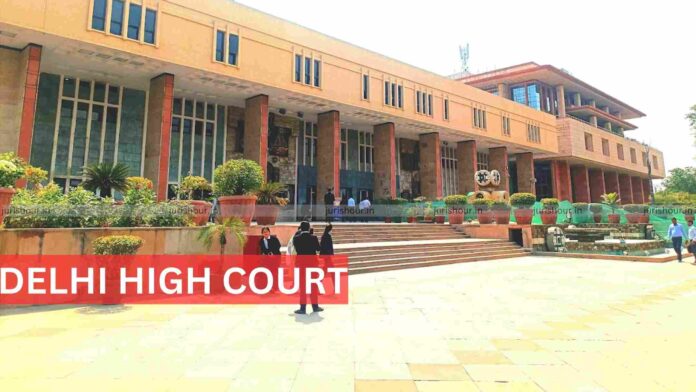The Delhi High Court has dismissed the writ petition in fraudulent Input Tax Credit (ITC) case and has stated that the challenge to Section 16(2)(c) of CGST Act is pending.
The bench of Justice Prathiba M. Singh and Justice Shail Jain has observed that in cases of availment of fraudulent ITC, it is repeatedly held that exercise of writ jurisdiction ought not to be the usual course, unless some exceptional circumstances exist.
The bench noted that the Petitioner was clearly hand-in-glove with M/s. Balaji and has enabled loss to the exchequer by fraudulently availing ITC without actual supply of goods or services. The investigations which were undertaken at the premises of the Petitioner shows that the Petitioner was well aware of the proceedings. No effort has been made to cooperate in the hearings and to establish bona fides. The reply filed is also quite sketchy and gives no details of the whereabouts of M/s. Balaji. Apart from simply saying that the documents in support of availing ITC exist, effort has not been made to answer the allegations in the SCN. There is a doubt as to whether even the personal hearing was attended. After the passing of the order, no attempt has been made to avail the appellate remedy within the period of limitation. It is only when the Electronic Cash Ledger was debited that the present writ petition is sought to be pressed for listing and orders.
The Directorate General of GST Intelligence (DGGI) conducted the investigation against various bogus and fake suppliers. One such supplier was M/s Balaji Sales Corporation (Balaji), which had its principal place of business at Nangloi, West Delhi. During the course of investigation, the concerned proprietor of M/s. Balaji was issued summons at its registered place of business, and inspection was sought to be conducted on the residential premises of the said proprietor. However, both the said addresses were found to be untraceable. Accordingly, it was realised that the said firm was not operational and non-existent indulging in passing-on of fraudulent Input Tax Credit (ITC).
Various e-way bills etc. were also pursued and out of 377 e-way bills, 100 vehicle registrations were found to be non-existent. One of the beneficiaries of M/s Balaji was found to be the Petitioner- M/s Treco Wire India Private Limited. The analysis of GSTR 2A of the Petitioner, as per the GST Department, revealed that the Petitioner had availed fraudulent ITC to the tune of Rs.29,90,898/- which was passed on to it by M/s Balaji. In view of the same, investigation under Section 67 and 70 of the Central Goods and Services Act, 2017 (CGST Act) was initiated by the GST Department against the Petitioner.
The petitioner contended that the blocking of the electronic cash ledger could not have been done without hearing the Petitioner. An application for unblocking the same has been filed on 17th April, 2025, however, the same has not been unblocked. On a query from the Court, as to whether the impugned order had been challenged prior to blocking of the electronic cash ledger, it was submitted that the present writ petition was filed sometime in April, 2025 but has been listed now for the first time. It is submitted that the writ was filed within the limitation period of under Section 107 of the CGST Act.
The court while dismissing the writ petition held that the existence of an alternate remedy is not an absolute bar to the maintainability of a writ petition under Article 226 of the Constitution. But a writ petition can be entertained in exceptional circumstances where there is a breach of fundamental Rights, a violation of the principles of natural justice; an excess of jurisdiction; or a challenge to the vires of the statute or delegated legislation.
Case Details
Case Title: Treco Wire India Pvt.Ltd Versus The Commissioner Of Central Goods And Service Tax And Ors
Case No.: W.P.(C) 14428/2025
Date: 24th September 2025
Counsel For Petitioner: Vijay Gupta
Counsel For Respondent: Aditya Singla

